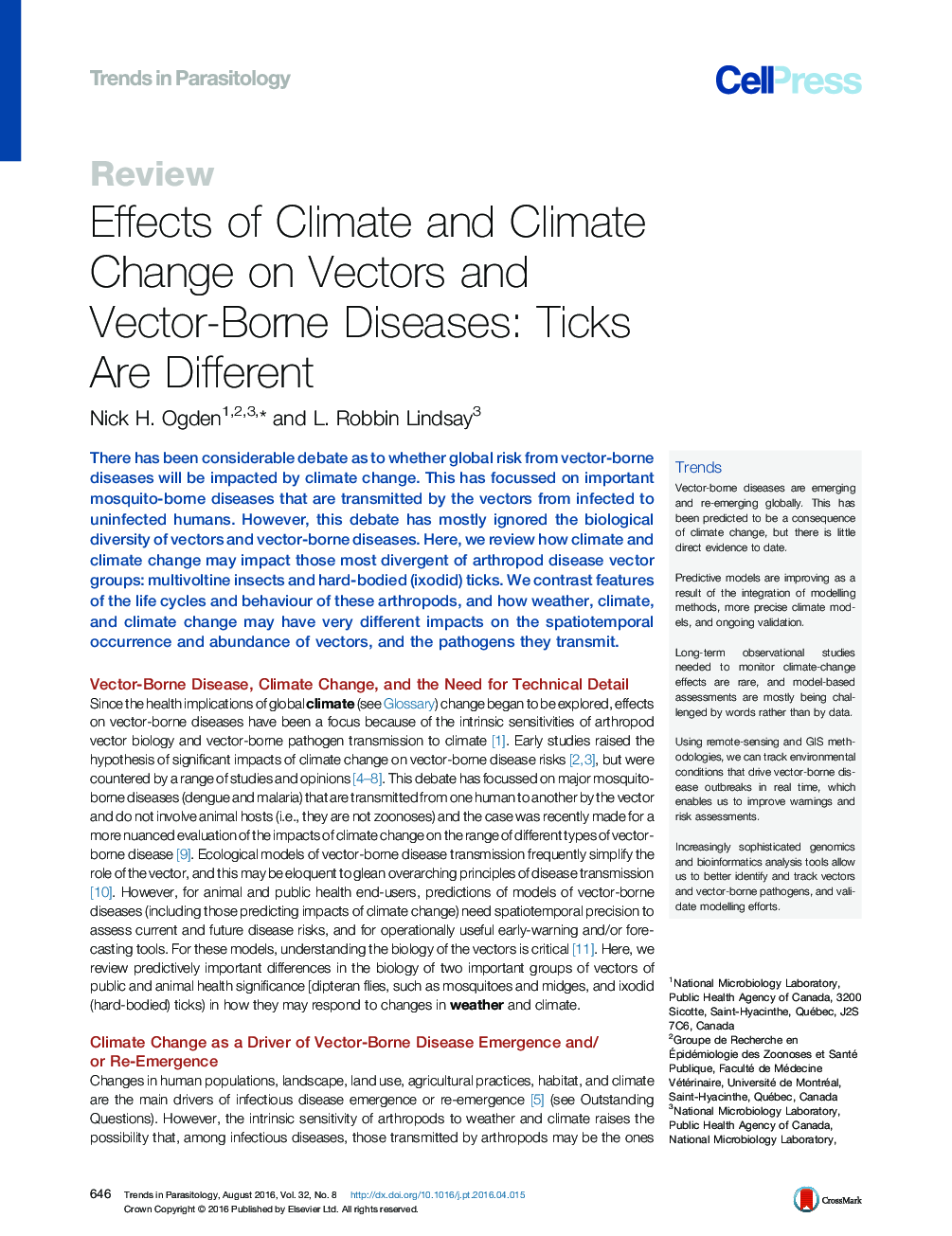| Article ID | Journal | Published Year | Pages | File Type |
|---|---|---|---|---|
| 3422937 | Trends in Parasitology | 2016 | 11 Pages |
There has been considerable debate as to whether global risk from vector-borne diseases will be impacted by climate change. This has focussed on important mosquito-borne diseases that are transmitted by the vectors from infected to uninfected humans. However, this debate has mostly ignored the biological diversity of vectors and vector-borne diseases. Here, we review how climate and climate change may impact those most divergent of arthropod disease vector groups: multivoltine insects and hard-bodied (ixodid) ticks. We contrast features of the life cycles and behaviour of these arthropods, and how weather, climate, and climate change may have very different impacts on the spatiotemporal occurrence and abundance of vectors, and the pathogens they transmit.
TrendsVector-borne diseases are emerging and re-emerging globally. This has been predicted to be a consequence of climate change, but there is little direct evidence to date.Predictive models are improving as a result of the integration of modelling methods, more precise climate models, and ongoing validation.Long-term observational studies needed to monitor climate-change effects are rare, and model-based assessments are mostly being challenged by words rather than by data.Using remote-sensing and GIS methodologies, we can track environmental conditions that drive vector-borne disease outbreaks in real time, which enables us to improve warnings and risk assessments.Increasingly sophisticated genomics and bioinformatics analysis tools allow us to better identify and track vectors and vector-borne pathogens, and validate modelling efforts.
